Why homework won’t disappear after home studying ends
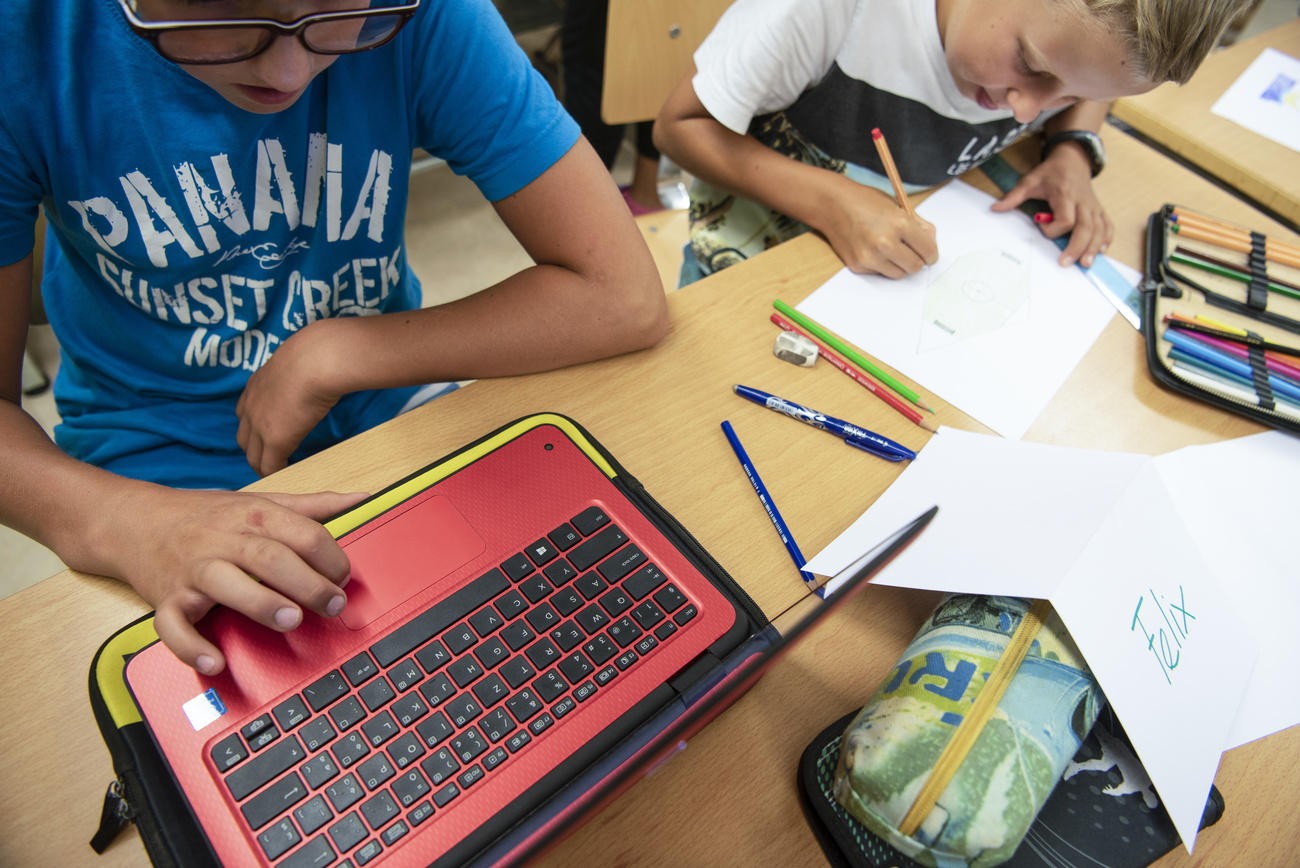
The term homework has taken on a whole new meaning with the closure of Swiss schools due to the coronavirus outbreak. But when distance learning, as it’s better known, comes to an end, some Swiss schools will reopen the debate on the importance of homework.
Before the health crisis began to wreak havoc, a primary school in eastern Switzerland had become the latest to experiment with stopping homework for its pupils.
The one-year pilot project, at the Feldli-Schoren primary school near St Gallen, concerned pupils aged around eight to 12.
“Our main aim here is equal opportunities: there are big gaps between educationally disadvantaged and educationally advantaged families. Homework is a stress for those who can’t ask their parents for advice or help,” headteacher Ralf Schäpper told the newspaper the St Galler TagblattExternal link, in February, after it was announced the scheme was being extended from its initial six months.
The move benefits everyone though. “When children come home from school, after seven lessons, they shouldn’t have to sit back at their desks again,” Schäpper said.
Instead, there are now four weekly extra supervised learning times at school, each lasting 20-30 minutes. The first feedback has been “mostly positive” among pupils, teachers and parents, according to Schäpper (although he admits some parents preferred the old system as they like to know what their kids are doing at school).
The Feldli-Schoren school is not alone. A primary school in KriensExternal link near Lucerne, and several in the Bern region have also abolished homework in recent years.
Controversial topic
The topic however remains controversialExternal link. Bernhard HauserExternal link, professor of early childhood studies, at the St Gallen University of Teacher Education, says there are several reasons why.
“Many children and parents are only too pleased when there is no homework because it means fewer tensions at home,” he told swissinfo.ch. “But international learning research results show that homework is one of the many contributions that ensures that schools work well and that the learning benefit is high.”
“There are of course parents who complain when there is no homework, so it’s also controversial among parents,” Hauser said. These parents feel homework is important for their children’s school performance and later careers.
Who makes the decision?
Education is the responsibly of the cantons in Switzerland, but much is decided on the local school level. Homework is not obligatoryExternal link. The Lehrplan 21 (Curriculum 21)External link for German-speaking Switzerland, for example, only says when homework shouldn’t be given, such as over a bank holiday, but not if it should be given.
There are guidelines on how much: in canton St Gallen it’s about 60 minutes a week for younger primary pupils, rising to two hours or more for 10-11 year olds and to four hours a week by the end of lower secondary level (until age 15), Hauser said.
Lost learning
Hauser is in favour of homework as it helps deepen knowledge. “If you work it out over the whole school career not doing homework is equivalent to 800 hours of lost learning,” he pointed out. Plus homework helps children develop self-regulation: making themselves do something they don’t necessary want to do – when football would be much more tempting. This is an important life lesson, he argues.
He says abolishing homework is still unusual in Switzerland. There are no official statistics, but he estimates that every 10-20 years there is an anti-homework movement, but it’s usually only a few schools who implement the policy. (However, the central of canton Schwyz uniquely did go as farExternal link as abolishing homework in 1993 but this only lasted four yearsExternal link due to parent protest).
There is no wave at present, the professor says, it’s more that when a school decides to abolish homework, it comes under extreme scrutiny. Not all schools take the same route either.

More
Coronavirus: the situation in Switzerland
“There are some schools which totally abolish homework, but others keep homework but bring it into the school. When you do this, the negative effect is not so large. But it’s to the detriment of those pupils who can work independently because they are supervised at school,” Hauser said.
Over the language border
And what of the situation in the French-speaking part of Switzerland, which has its own curriculum? Samuel Rohrbach, from the Swiss union of French-speaking teachersExternal link, said homework was regularly discussed in the region. “Several cantons such as Neuchâtel and Jura have published directives containing for example the maximum time to be spent per day on homework. People don’t want pupils to have too heavy a burden,” Rohrbach said via email.
The association also raises the inequality issue but also the need to learn autonomy through doing homework. It proposes supervised sessions in schools which would give all pupils the benefit of support. The work should also be a continuation of what was done in class and nothing new, added Rohrbach.
Support for parents?
Hauser has also been thinking about how to boost equal opportunities. In addition to daily homework assistance sessions being available at school – some schools offer this type support already but often only a few times a week – educationally disadvantaged parents could be offered courses on how best to support their children during homework, he argues.
That way, those pupils who can and are able to do homework at home can, and those who can’t get the support they need, he said.
Meanwhile, the Feldli-Schoren school is set evaluate its project before the summer holidays, headteacher Schäpper told the St Galler TagblattExternal link. No decision has been made yet about whether there will be homework – or not – in the next school year.
International comparison
There do not appear to be many official reports on homework habits, but this 2014 OECD reportExternal link gives a snapshot for older students. It found that 15-year old students from its 2012 PISA assessment spent almost five hours a week doing homework (all the countries in the survey had assigned homework).
Switzerland was ranked 11 (out of 38) with students reporting around 4 hours of homework a week. Chart-toppers Finland and Korea had less than three hours, while pupils in Ireland, Italy, Kazakhstan, Romania, the Russian Federation and Singapore posted more than seven hours a week.
The report also found that advantaged students spent more time on doing homework than disadvantaged ones – in all PISA countries.
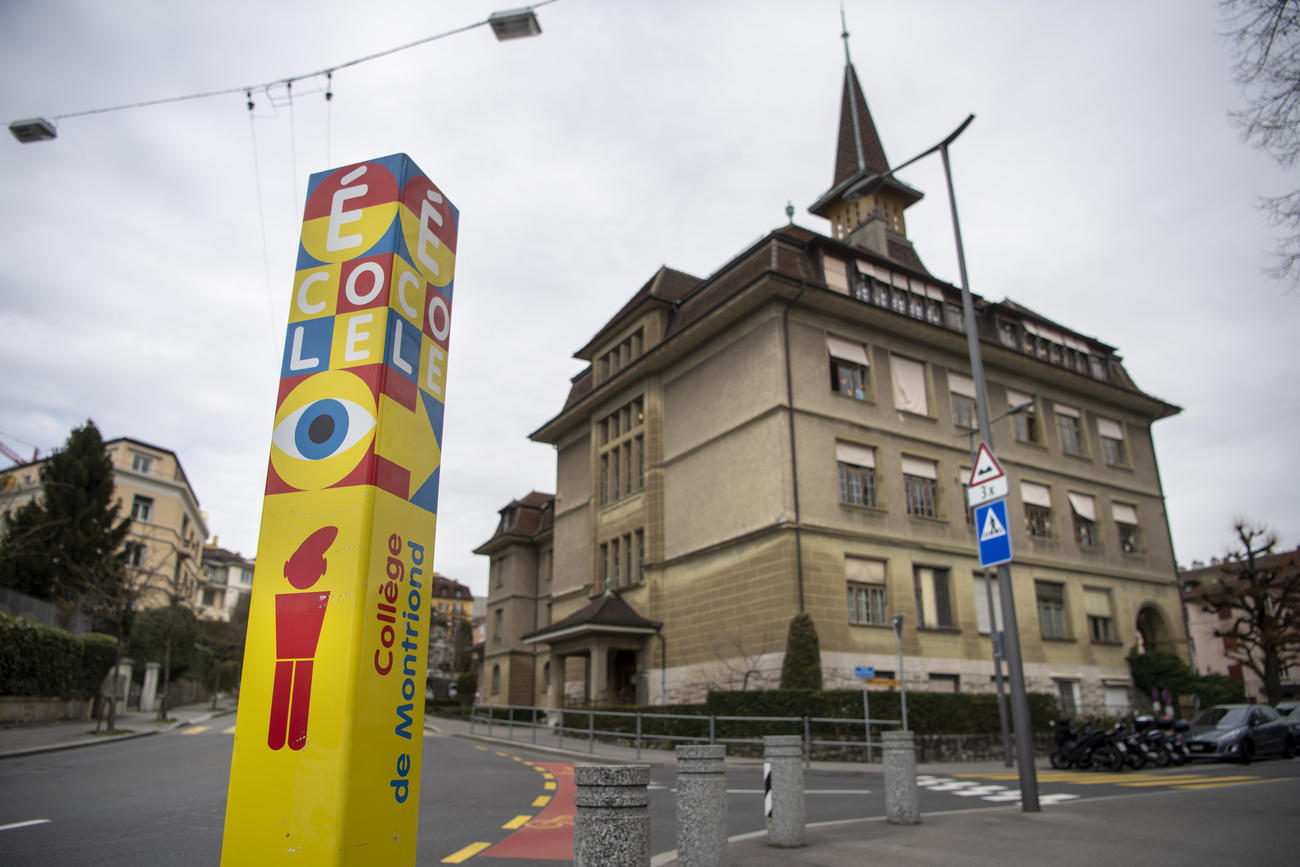
More
Switzerland closes its schools to slow virus spread

In compliance with the JTI standards
More: SWI swissinfo.ch certified by the Journalism Trust Initiative









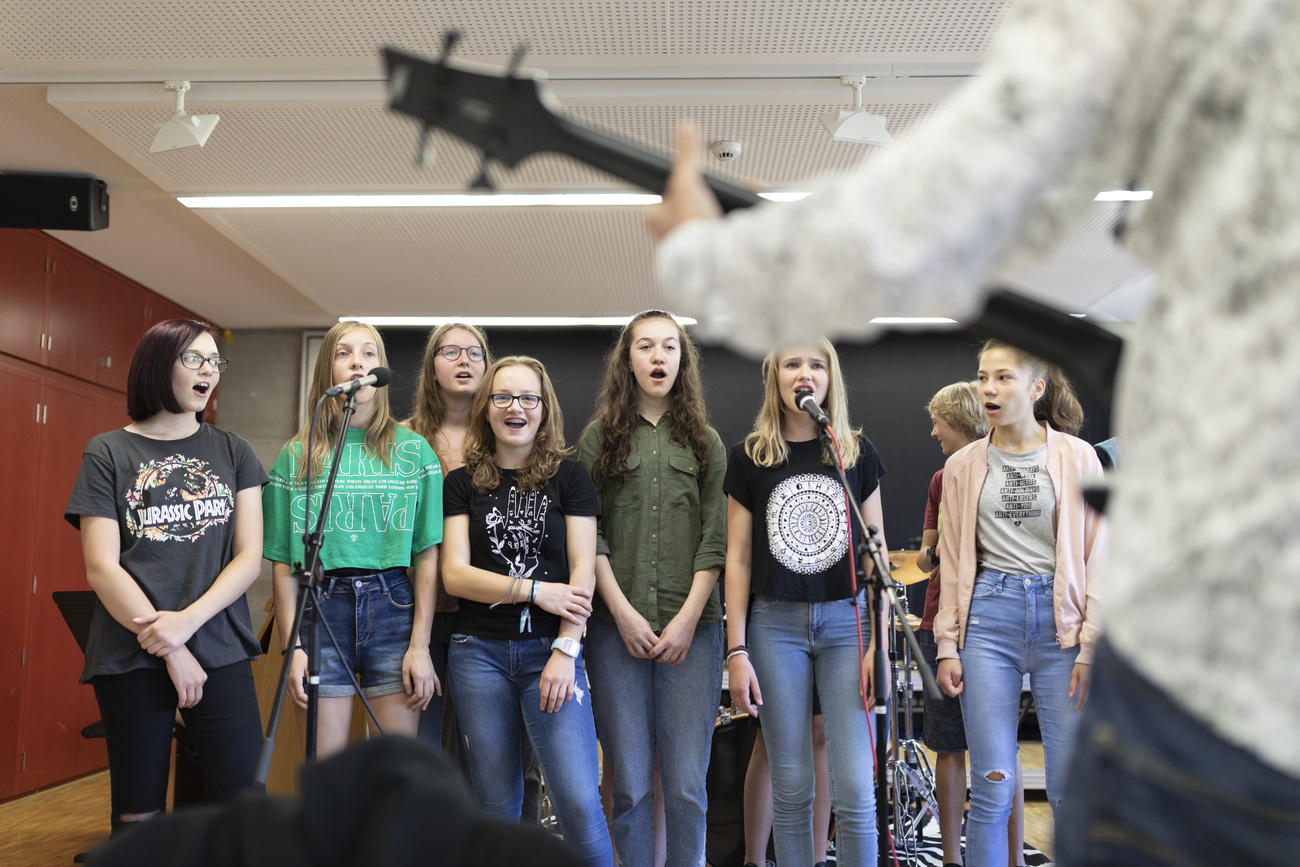
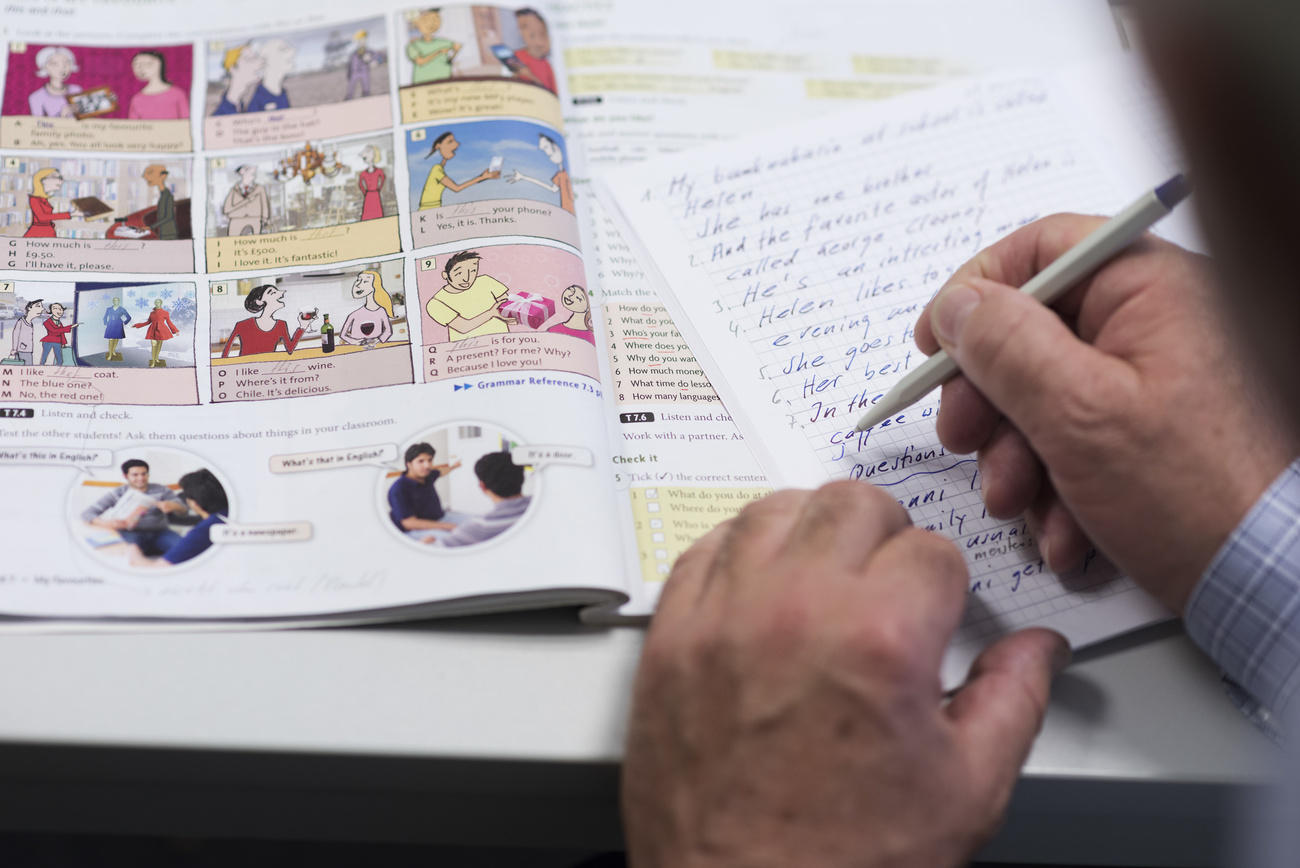
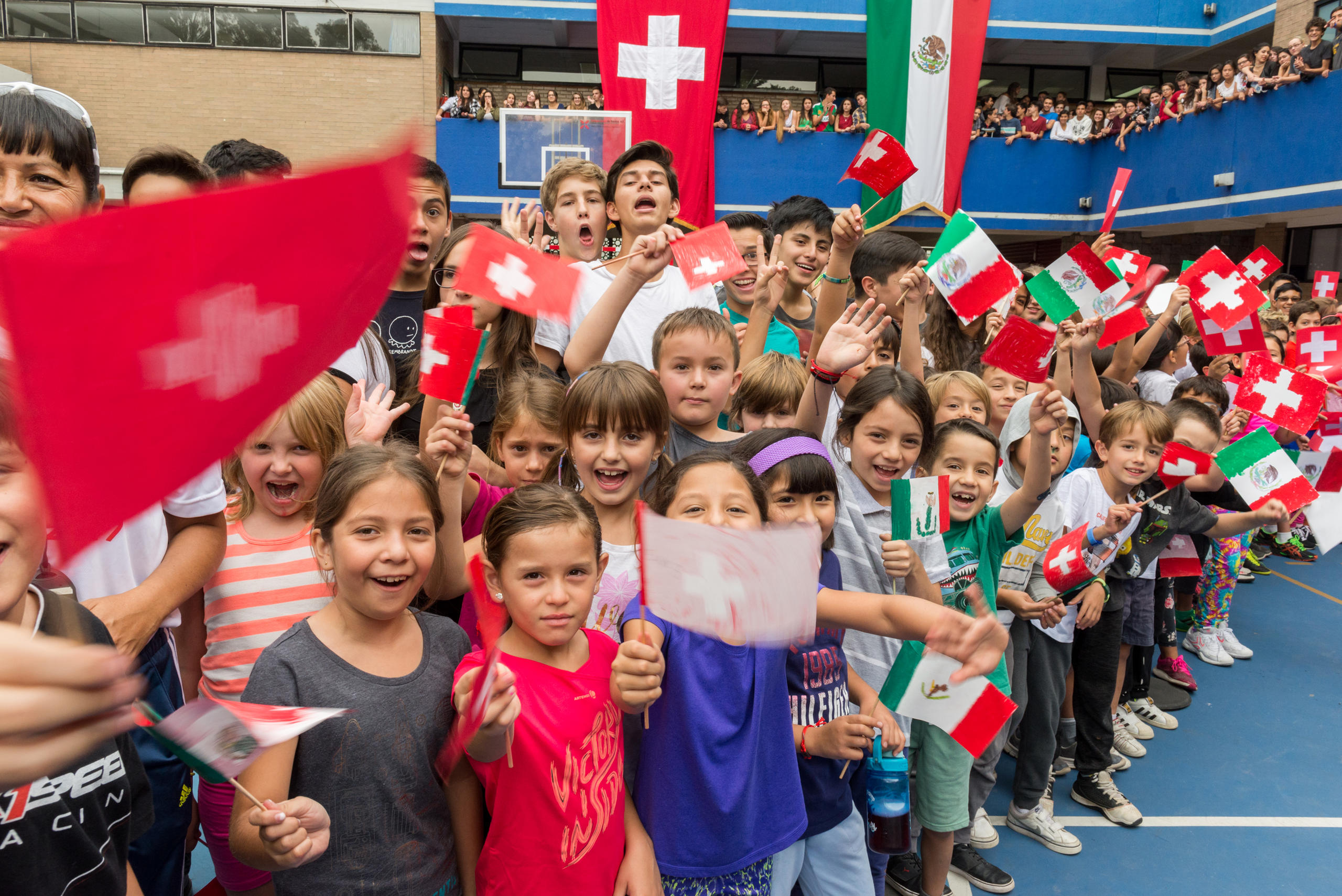
You can find an overview of ongoing debates with our journalists here . Please join us!
If you want to start a conversation about a topic raised in this article or want to report factual errors, email us at english@swissinfo.ch.